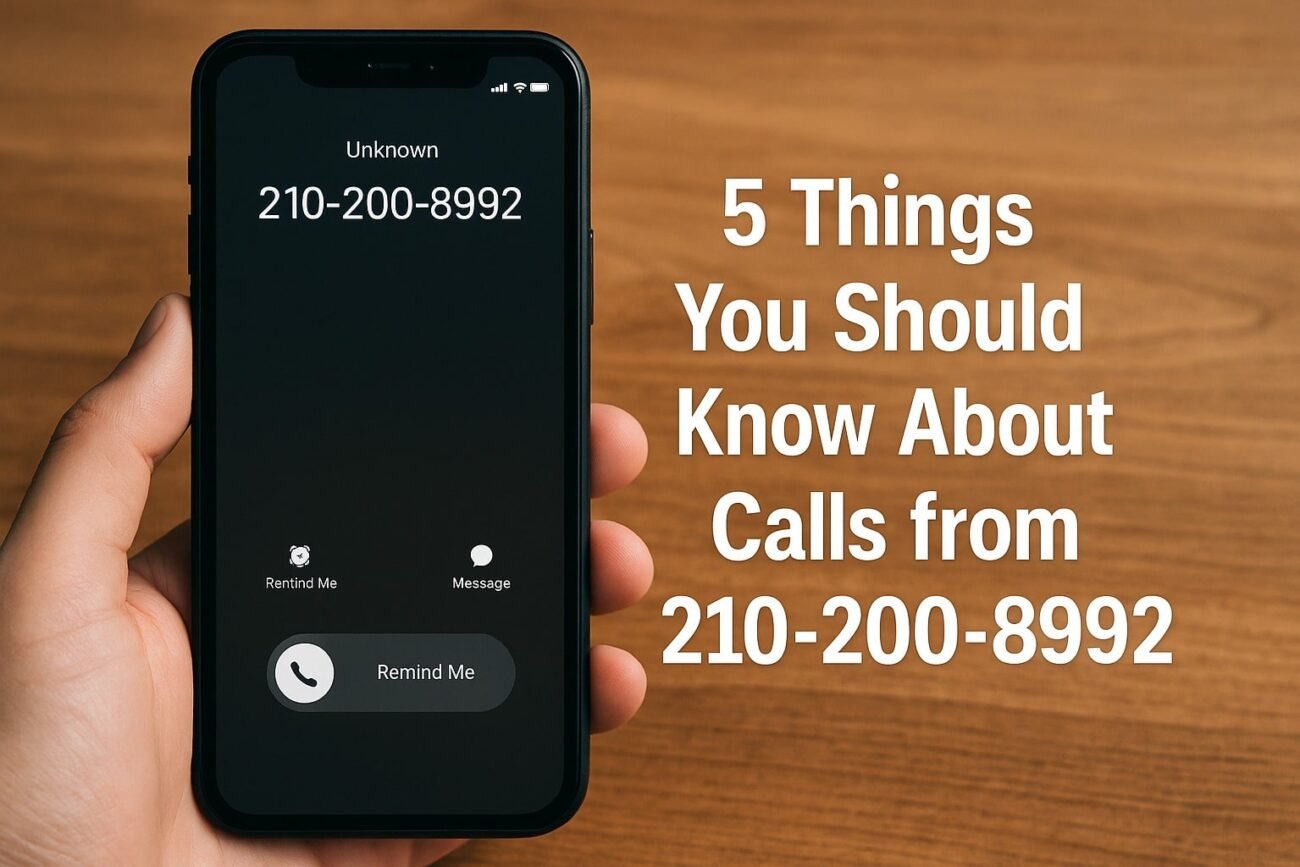If you’ve recently received a call or message from the number 210-200-8992, you’re not alone. Many people search for this number to understand its purpose, origin, or whether it’s something they should be concerned about. In this guide, we’ll break down everything you need to know about 210-200-8992 in a clear, factual, and trustworthy way.
Whether it’s for your peace of mind or to stay informed about unfamiliar calls, this article will help you understand the possible reasons behind the call and what actions you can take.
Where Is 210-200-8992 From?
The phone number 210-200-8992 is registered under the 210 area code, which is primarily based in San Antonio, Texas. The 210 area code covers the greater San Antonio region and is widely used by both individuals and businesses.
However, just because the area code is from Texas doesn’t necessarily mean the call actually originated from there. With modern technologies like VoIP (Voice over Internet Protocol) and caller ID spoofing, calls can appear as if they’re coming from one location while actually being placed from somewhere else—sometimes even internationally.
Who Is Behind The Number?
There is no publicly verified business or individual officially linked to 210-200-8992 as of the latest available information. Several online forums and call report databases suggest that this number may be part of:
- Telemarketing campaigns
- Robocalls or automated messages
- Survey or research call centers
- Potential scam or spam activity
Some users have reported receiving multiple calls per day, while others mention hang-up calls, messages promoting insurance or financial services, or requests for personal information.
It’s important to note that not every unknown number is a scam. However, unsolicited calls that ask for sensitive information should be treated with caution.
Common Red Flags To Watch For
Here are some warning signs that a call from 210-200-8992 may not be legitimate:
- The caller refuses to identify themselves or provides vague answers.
- You’re asked for personal details like your Social Security number, banking information, or passwords.
- The call uses urgent language, trying to scare or pressure you into acting quickly.
- You receive a pre-recorded message rather than speaking with a real person.
- The call comes in multiple times a day without leaving a voicemail.
These are standard tactics used in many scam or spam calls.
What Should You Do If You Receive A Call From 210-200-8992?
If you receive a call from this number, here are a few steps to handle it wisely:
- Don’t Answer Unfamiliar Numbers: If you don’t recognize the number, let it go to voicemail. Legitimate callers will often leave a message.
- Do Not Share Personal Information: Never share private or financial details unless you’re certain about the identity of the caller.
- Use a Reverse Phone Lookup Tool: Sites like Truecaller, Hiya, or even Google can help identify reports related to the number.
- Block the Number: Most smartphones allow you to block specific numbers. This prevents further unwanted calls.
- Report the Call: You can report suspicious numbers to organizations like:
- The Federal Trade Commission (FTC) via donotcall.gov
- Your phone carrier for potential scam investigation
- Community-based spam call apps like RoboKiller or Nomorobo
Expert Tips To Stay Safe From Suspicious Calls
- Enable Call Protection Features: Carriers like AT&T, Verizon, and T-Mobile offer call filtering services that automatically identify or block known spam calls.
- Keep Software Updated: Always keep your phone’s operating system updated to use the latest security features.
- Register with the National Do Not Call List: While not foolproof, this list helps reduce calls from legitimate telemarketers.
- Educate Others: Especially elderly family members, who are often targeted by scam callers.
Final Thoughts
Receiving a call from 210-200-8992 doesn’t automatically mean you’re in danger or being targeted for fraud. But it does warrant caution—especially if the caller behaves suspiciously or asks for personal information.
In today’s digital age, staying informed and aware is the best defense. By following smart, simple steps, you can protect yourself and others from the inconvenience—and in some cases, harm—of unwanted calls.
Hungry for more? Head over to my website for fresh articles.
7 Key Facts About Assimilasjon You Should Understand In 2025
